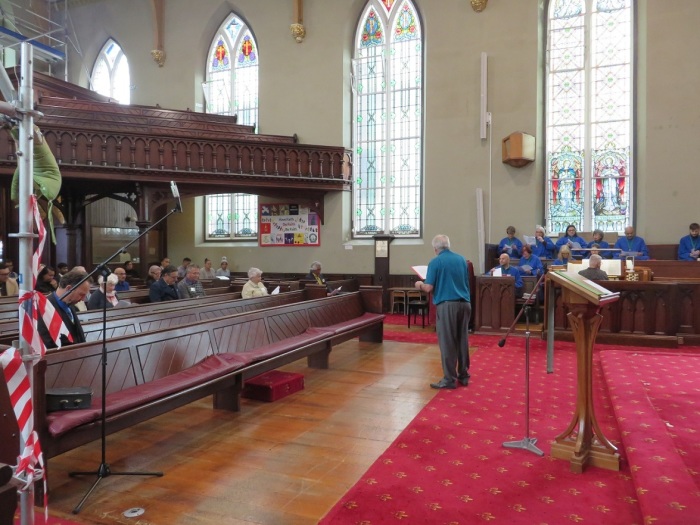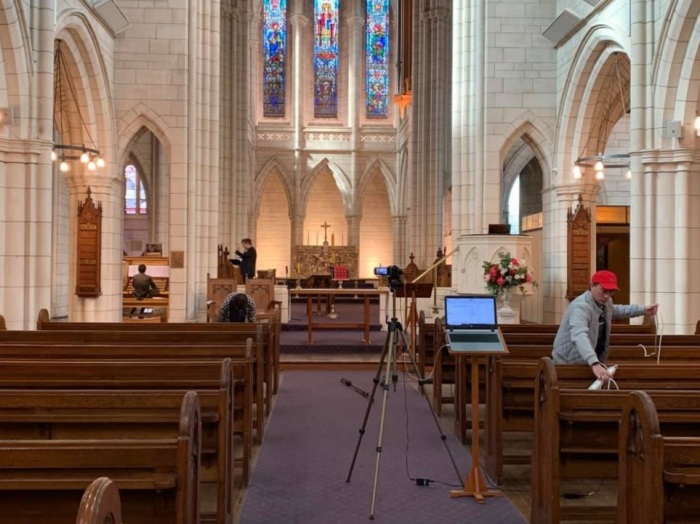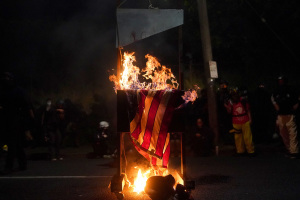Life after COVID-19 lockdown: New Zealand churches returning to normal, give advice to US Christians

Earlier this month, New Zealand announced that it was lifting restrictions on public gatherings aimed at curbing the spread of COVID-19, having gone several days without any new cases.
The island nation instituted a series of shutdown measures back in March, including a travel ban on foreigners to the country and restrictions on mass gatherings.
A return to normal activities and public events in New Zealand has also included its churches, which overwhelmingly followed the lockdown rules.
The Christian Post interviewed a few churches to get their perspective on the lockdown, how they adapted to the situation, and what advice they have for Christians in the United States.
Adapting to the shutdowns
To respond to the coronavirus, New Zealand enacted a 4-level national alert system, with each level varying in the extent to which in-person contact was restricted.
Level 4, or "lockdown," was enacted on March 25 and involved shutting down the country due to high risk, with the situation being the virus was not contained.
Level 1, "prepare," involved the virus being contained within the country, albeit still not contained abroad. The nation went into level 1 on June 8.
Ian Faulkner, minister at Auckland Methodist Central Parish, told CP that all Methodist church services were suspended during government lockdown.
“One response in the Auckland Methodist Central Parish was to create a webpage based virtual church service that I contributed to. Eleven services were conducted in this way from Palm Sunday until 7 June,” Faulkner said.
“I appreciated that a telephone-tree maintained by lay members was operating to keep others in touch with what was happening and to check on their wellbeing.”
For them, indoor worship began last Sunday, with a service in English and one in Fijian, an Asian Pacific language spoken by a growing number of people in New Zealand.
The Rev. Helen Jacobi of St. Matthew-in-the-City in Auckland, an Anglican congregation, said they “had no choice but to close as every activity was closed in our level 4 lockdown.”
“We prerecorded videos for Sunday mornings which were on our website, YouTube and Facebook,” noted Jacobi. “We then held a congregational zoom meeting each Sunday where we shared news and discussed the weekly readings in small groups.”
Jacobi reported getting good viewing numbers for the online worship videos, with more people tuning in than had previously attended services in person.
She reported staying home for six weeks, followed by two Sundays where worship involved “social distancing, no singing, no morning tea.”
When they returned to the “normal” worship setting, Jacobi told CP the congregation was “particularly thrilled” as they could finally “catch up and spend time with each other.”

Pixie Rowe, wife of the Very Rev. David Rowe, dean of Wellington Cathedral of St. Paul, and herself a native of the United States, told CP that they switched to online services fairly quickly due to many of their congregation being senior citizens, a major at-risk population for the pandemic.
“We therefore recorded in advance, the first three Sunday’s services. We also recorded daily prayers, and those have continued to be available through our website,” Rowe said.
“After the Easter season, we began doing ‘Zoom’ services, and these were again well received. A large number of our older folk were already used to zoom as many people here have relatives elsewhere in the world.”
As with St. Matthew-in-the-City, Wellington Cathedral saw a higher viewership for their online services than previous in-person attendance figures, with Rowe estimating that they had about four times the viewers for the video prayers as they had for morning prayers.
Services returned to the Cathedral when the nation went down to level 2, but still included safety measures such as not serving drinks, having only wafers for Communion and not wine, using hand sanitizer, and no touching during the passing of the peace.
“The whole building had been cleaned professionally as well,” she recalled. “This ended up only being one week, but the turnout was very good.”
An absence of defiance
In the U.S., the majority of churches have adhered to limits on in-person worship services, with most switching to online services.
Nevertheless, many congregations have resisted state government-imposed restrictions, with some considering lockdown measures to be a violation of their religious freedom rights.
None of the ministry leaders in New Zealand that CP interviewed reported defying government lockdown orders, neither could they recollect any specific congregations that defied the orders.
Jacobi of St. Matthew-in-the-City told CP that there was “extremely good acceptance from all of us” regarding the government lockdown rules.
“New Zealand has a very different system of government and cultural understanding of ‘individual rights’ than the U.S.,” she said.
“We did not hesitate to comply for the good of the majority and the police were also very quick to stop people out and about under level 4 to check they were authorized to be out.”
Faulkner of Methodist Central recalled hearing about one church that held drive-in services in which some of the people left their cars despite being told to stay inside their vehicles.
Gary Corbett, an administrator with Ponsonby Baptist Church of Auckland, told CP that neither his church nor any he knew of had attempted to defy the lockdown orders.
As part of their efforts to help during the shutdown, Ponsoby Baptist set up a “virtual community cupboard” in which people could take and leave food items.
“A fund was set up which received donations for church funds and from church people. Anyone could apply for a small emergency grant for food or other expenses,” Corbett added.
“So far there has been only two grants given out, which was less than we expected. There may be more applications in future as the economic fallout of the pandemic continues to bite.”
Rowe of Wellington Cathedral also told CP that she did not know of any churches that had defied the government orders, “including smaller home gatherings.”
“People here in Wellington were very careful and did not even travel much further than 5 miles from home. Some never used their cars for over six weeks,” Rowe said.
She noted that there was a great deal of communication through texting and messaging among Cathedral members, especially during the first few weeks of the shutdown.
They also oversaw the dropping off of food with notes of encouragement among various neighborhoods in the country, with Rowe reporting that “prayer requests and offers of help became the new normal.”
Advice for American churches
While New Zealand has fully reopened, much of the U.S. maintains varying levels of in-person gathering restrictions, with several states gradually easing them in recent weeks.
When asked to give advice to American churches still weathering the restrictions, Corbett of Ponsonby Baptist said to “be responsible” and “follow strict physical distancing guidelines.”
“We should surely be an example of looking out for others’ well-being and unselfishness,” he suggested.
Rowe recommended both staying indoors but also keeping up communication with others even as one keeps distance for health reasons.
“Ring your congregation, text them, shop for them. Keep your distance and think of others, pray for them, wave to them,” Rowe added. “You have more televised services already than anywhere in the world. Use them, email your fellow believers, encourage each other, and don’t make it a political thing. Just love them like Jesus. When you get back together, you can rejoice.”
Faulkner offered positive encouragement, telling CP that American congregations to be assured that “you will be able to meet again.”
“The health and well-being of people is a paramount Gospel approach to the crisis that surrounds us. Best of all, we are with God,” Faulkner said.




























